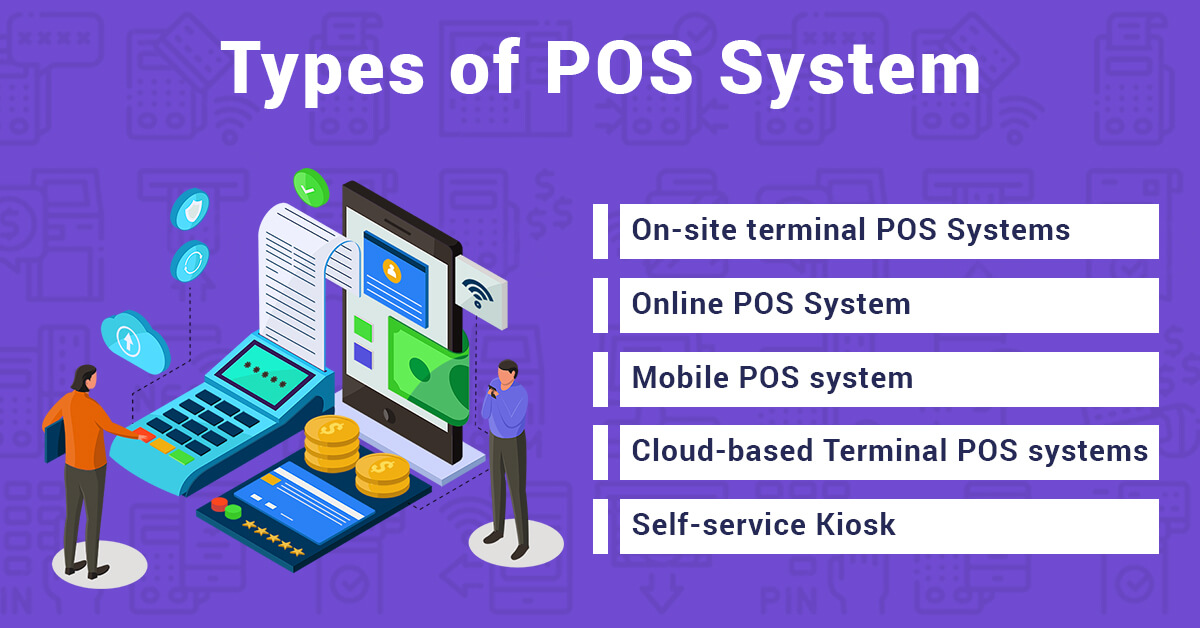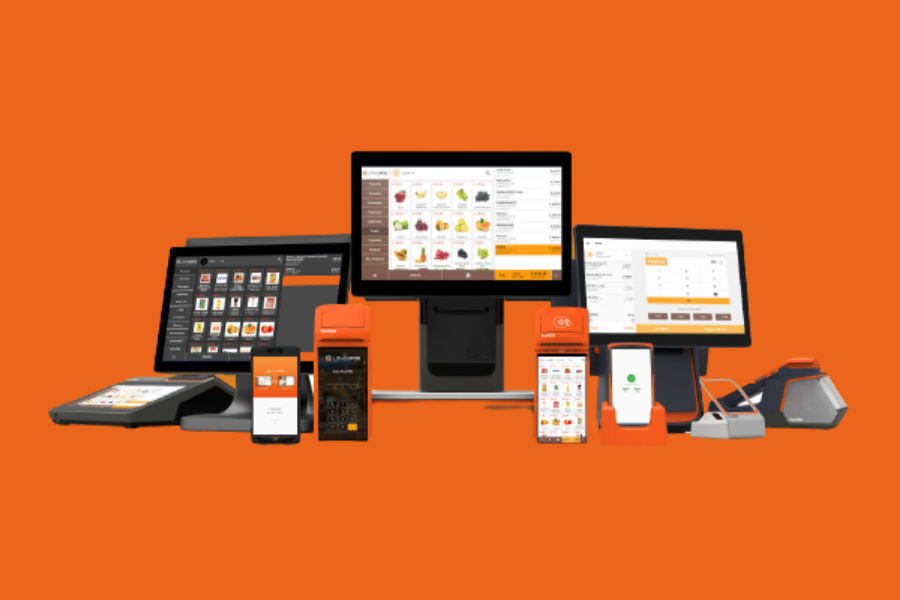Understanding the Value of POS Software Program in Modern Retail Workflow
In today's retail landscape, the role of POS software has actually come to be increasingly substantial. These systems have transformed from standard sales register to multifaceted tools that enhance various elements of procedures. They not just improve deals yet likewise give insights that can shape service techniques. Understanding how these systems effect customer experience and stock management is crucial for any kind of seller seeking to remain competitive. The effects of these innovations necessitate additional expedition.
The Development of POS Software: From Transaction Handling to Comprehensive Solutions
As retail atmospheres evolved, so also did the functionality of Factor of Sale (POS) software application, which moved from basic transaction handling systems to innovative, all-encompassing services. POS systems mainly dealt with sales transactions, managing cash registers and printing receipts. With developments in modern technology, these systems began integrating inventory monitoring, client partnership monitoring, and sales analytics. Retailers identified the need for real-time information and smooth operations, triggering the advancement of cloud-based POS solutions that enabled remote accessibility and enhanced scalability.Additionally, the increase of mobile business necessitated POS systems to adapt, allowing purchases via tablet computers and smart devices. This change not just structured operations however additionally enhanced reporting capacities, allowing retailers to make enlightened choices based upon comprehensive information understandings. Consequently, modern-day POS software program has actually ended up being important to retail technique, offering as a multifunctional device that sustains various functional elements past mere deal processing.
Enhancing Client Experience Through Advanced POS Features
While lots of sellers concentrate on operational performance, progressed POS attributes increasingly focus on enhancing the customer experience. Modern POS systems currently provide performances such as mobile payment alternatives, personalized promotions, and consumer loyalty programs, which foster a more appealing buying environment. By streamlining the check out procedure, these systems minimize wait times, enabling clients to full transactions swiftly and efficiently.Additionally, incorporated consumer connection management (CRM) functions allow merchants to track acquiring habits and choices, facilitating tailored advertising initiatives. This personalization not only builds customer loyalty but additionally boosts overall satisfaction.Moreover, advanced analytics supplied by POS systems can aid merchants recognize client fads and preferences, permitting them to make informed choices about product offerings and store formats. Inevitably, the concentrate on consumer experience with advanced POS features not only meets modern consumer expectations but additionally drives repeat service and enhances earnings for stores.
Streamlining Supply Management With Integrated POS Solutions
Integrated POS systems play a necessary function in streamlining inventory monitoring by automating processes that traditionally needed substantial manual effort (Restaurant POS Software). These systems allow retailers to track supply levels in actual time, removing inconsistencies that often develop from manual stock matters. With functions such as barcode scanning and automated stock replenishment informs, businesses can maintain optimal inventory degrees without overstocking or stockouts.Furthermore, incorporated POS systems help with exact projecting by analyzing historical sales data, enabling merchants to make informed purchasing decisions. This predictive ability aids services adjust to transforming customer demands and seasonal patterns extra effectively.Additionally, the centralization of supply information across numerous sales channels boosts presence, allowing merchants to handle their stock extra effectively. Ultimately, the combination of POS systems into inventory monitoring simplifies procedures, decreases human error, and adds to increased earnings
Real-Time Sales Tracking and Reporting for Informed Decision-Making
Accurate inventory administration lays the groundwork for reliable sales tracking and reporting. Real-time sales tracking makes it possible for merchants to keep an eye on sales performance as it takes place, giving instant understandings into consumer getting patterns and patterns. This ability enables companies to respond swiftly to changes sought after, maximizing supply levels and lessening overstock or stockouts.Moreover, integrated POS systems assist in the generation of in-depth reports, highlighting key metrics such as sales by group, amount of time, and private products. Such coverage capacities equip stores to make data-driven decisions, identifying effective approaches and areas requiring renovation.

The Function of POS Software Program in Client Connection Monitoring
POS software application plays a crucial role in improving consumer relationship administration by making it possible for retailers to implement tailored advertising and marketing approaches. By evaluating customer data, businesses can tailor promotions and interactions to satisfy individual preferences. Furthermore, these systems assist in the development of enhanced commitment programs that encourage repeat organization and strengthen client involvement.
Personalized Advertising Approaches
As sellers increasingly look for to enhance consumer loyalty and involvement, individualized advertising methods have actually emerged as an important part of effective client partnership management. POS software plays an important function in this process by collecting and analyzing client data, making it possible for merchants to customize advertising and marketing initiatives to specific preferences and buying habits. By leveraging understandings from purchase histories, stores can develop targeted promos and individualized interactions that reverberate with clients, cultivating a much deeper connection. Additionally, the assimilation of POS software with consumer connection management systems permits seamless tracking of client interactions, guaranteeing that advertising and marketing strategies remain timely and pertinent. This data-driven approach not only boosts client complete satisfaction but also motivates and drives sales repeat company, solidifying the merchant's market placement.
Boosted Commitment Programs
Retailers are progressively recognizing the value of commitment programs in fostering lasting consumer partnerships and boosting total engagement. POS software application plays a vital role in the development and monitoring of these programs, allowing stores to track customer actions, choices, and purchases successfully. By leveraging data analytics, services can create tailored benefits and incentives that resonate with individual clients, thereby enhancing engagement in commitment programs. Additionally, POS systems make it possible for seamless assimilation with electronic platforms and mobile apps, promoting easy accessibility to rewards and promos. This not just improves customer fulfillment yet likewise drives repeat business. Inevitably, POS software application empowers sellers to grow much deeper connections with their clientele, changing occasional customers into loyal customers through targeted and significant engagement methods.
Integrating POS Systems With Shopping Operating Systems for Omnichannel Success
To achieve real omnichannel success, seamless integration in between point-of-sale (POS) systems and ecommerce systems is crucial. This assimilation permits sellers to combine their inventory monitoring, making certain that product schedule is properly mirrored across both online and physical shops. Clients benefit from a cohesive purchasing experience, where they can quickly change in between networks without encountering discrepancies.Furthermore, incorporated systems facilitate real-time information sharing, allowing businesses to analyze consumer actions and preferences better. This data-driven approach allows sellers to tailor advertising and marketing methods and optimize stock degrees, ultimately improving client complete satisfaction and driving sales.Additionally, the capability to process transactions throughout systems simplifies operations, reducing the risk of mistakes and improving click here general efficiency. As retailers increasingly take on omnichannel techniques, the integration of POS systems with shopping platforms stays an essential element in accomplishing lasting growth and maintaining competitive advantage in the vibrant retail landscape.

Future Trends in POS Technology and Their Effect on Retail Operations
As retail operations evolve, future patterns in POS modern technology are set to improve the landscape considerably. The increase of cloud-based solutions, developments in mobile POS systems, and the benefits of AI combination are amongst the vital developments expected to enhance performance and consumer experience. These innovations guarantee to simplify processes and cultivate a more dynamic retail atmosphere.
Cloud-Based Solutions Surge
With the boosting dependence on innovation, cloud-based POS options are changing retail procedures by using boosted flexibility and scalability. These systems enable merchants to access real-time information from anywhere, promoting far better decision-making and customer care. By leveraging cloud framework, businesses can lower ahead of time costs related to equipment and software program installations while making certain smooth updates and upkeep. In addition, cloud-based solutions sustain multi-location management, allowing sellers to integrate inventory and sales across numerous electrical outlets effortlessly. This adaptability is necessary in today's busy market, where consumer preferences change swiftly. As more stores embrace these solutions, they can anticipate enhanced functional efficiency and a more receptive method to market demands, inevitably boosting client contentment and commitment.
Mobile POS Innovations
The development of retail modern technology remains to shape operations, specifically with the rise of mobile POS advancements. These systems make it possible for retailers to process deals anywhere within the shop, boosting customer involvement and simplifying checkout processes. Mobile POS remedies enhance stock management by allowing instant accessibility to stock degrees, helping team help customers a lot more effectively. Additionally, they help with customized shopping experiences with incorporated client data and commitment programs. As mobile phones come to be progressively innovative, retailers are embracing attributes such as electronic invoices and contactless payments, furthermore optimizing the buying trip. The shift towards mobile POS not only enhances operational performance however likewise lines up with the expanding customer choice for convenience, making sure that merchants click here continue to be affordable in a swiftly evolving market.
AI Integration Advantages
AI get more info assimilation represents a transformative leap in POS innovation, using sellers a myriad of advantages that enhance operational efficiency and client experience. By leveraging artificial intelligence formulas, stores can evaluate purchasing patterns and enhance inventory monitoring, decreasing waste and stockouts. In addition, AI-powered analytics give tailored marketing referrals, enabling targeted promotions that boost consumer interaction and commitment (Restaurant POS Software). Chatbots and digital assistants improve customer solution, enabling for quicker resolution of queries and enhancing the overall shopping experience. Predictive analytics can additionally anticipate need fads, allowing smarter staffing and resource allotment. Ultimately, the integration of AI in POS systems encourages merchants to make data-driven choices, cultivating a competitive edge in an ever-evolving retail landscape
Often Asked Questions
What Are the Prices Connected With Implementing POS Software Application?
The prices connected with executing POS software application can consist of software licensing costs, hardware expenditures, setup charges, training prices, and continuous upkeep. Each aspect contributes to the total investment necessary for an effective implementation.
How Can Small Retailers Take Advantage Of POS Equipments?

What Equipment Is Needed for a POS System?
A regular POS system requires necessary equipment components, consisting of a touchscreen monitor, cash money drawer, barcode scanner, invoice printer, and settlement terminal. These elements work with each other to assist in efficient purchase processing and inventory monitoring for merchants.
Can POS Software Be Customized for Particular Retail Demands?
POS software can undoubtedly be customized to fulfill details retail requirements. This flexibility permits companies to customize attributes, interfaces, and reporting tools, boosting functional efficiency and giving a more individualized experience for both team and customers.
Exactly How Safe And Secure Is Customer Data in POS Equipments?
The safety of customer data in POS systems varies widely. Numerous systems implement file encryption, secure access controls, and normal updates, yet susceptabilities can still exist, requiring ongoing alertness and proactive actions from merchants to secure delicate info. By enhancing the check out procedure, these systems reduce wait times, permitting clients to complete transactions quickly and efficiently.Additionally, integrated consumer relationship administration (CRM) functions allow stores to track purchasing choices and habits, facilitating customized advertising efforts. As retailers increasingly look for to boost consumer commitment and involvement, customized advertising approaches have arised as a crucial part of reliable client connection management. In addition, the combination of POS software program with client relationship monitoring systems permits for smooth monitoring of consumer communications, ensuring that marketing strategies continue to be timely and appropriate. Customers profit from a cohesive shopping experience, where they can easily switch over between channels without coming across discrepancies.Furthermore, integrated systems promote real-time data sharing, making it possible for services to examine client actions and preferences much more effectively. Tiny sellers can profit from POS systems through enhanced purchase effectiveness, structured supply monitoring, and improved consumer insights.